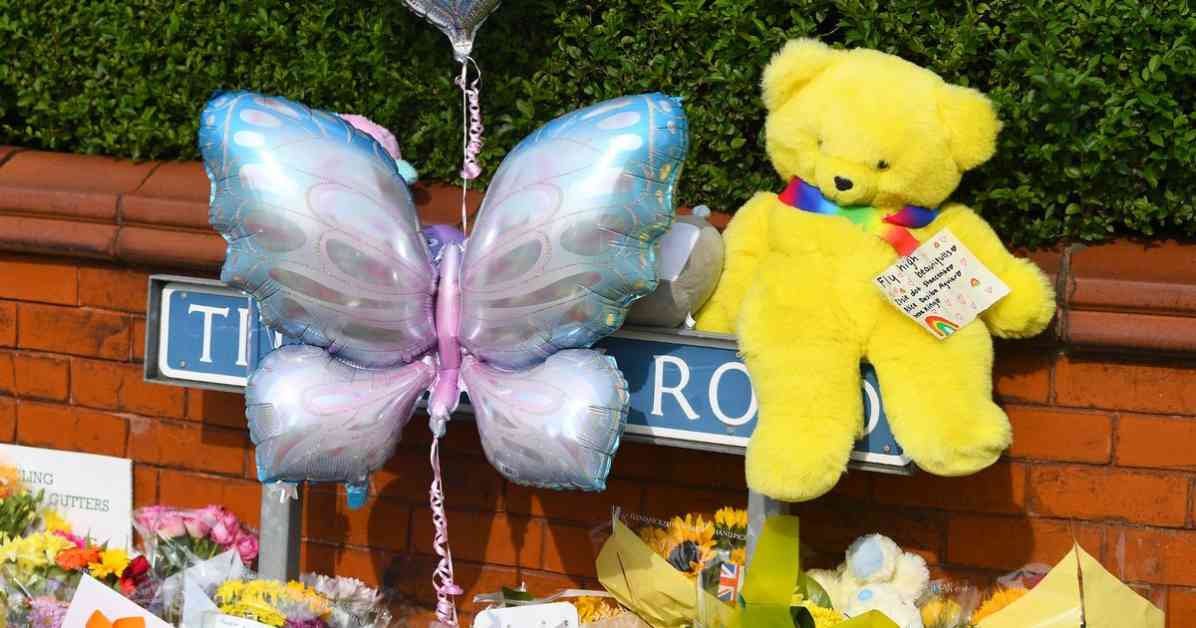Sefton Council to Learn from Recovery Plans after Southport Stabbing Tragedy
Sefton Council is committed to drawing lessons from the recovery plans implemented after the Manchester Arena bombing and the Grenfell disaster to provide much-needed support for those impacted by the tragic events that unfolded in Southport on July 29. The local authority is currently collaborating with resilience teams from Manchester and London, who played crucial roles in creating recovery plans following the aforementioned incidents.
The mass stabbing incident in Southport left a deep scar on the community, claiming the lives of three young children – Alice Da Silva Aguiar, Bebe King, and Elsie Dot Stancombe – and leaving eight children and two adults with serious injuries. The horror that unfolded on St Lukes Road in late July was described by Sefton Council as ‘unimaginable,’ bringing devastation and despair not only to the local community but also beyond. In response, the council is working tirelessly to establish a comprehensive recovery plan to support all those affected by the incident.
Recovery Plans and Community Support
A cabinet report published ahead of a council meeting on September 5 detailed Sefton Council’s response to the mass stabbing incident, outlining the steps taken to address the aftermath of the tragedy. The council acknowledged the need for a fully rounded recovery plan to provide support to the affected individuals and families. In addition to addressing the immediate impact of the incident, the recovery plans will also take into account the repercussions of the violent attack on the Southport Mosque and Islamic Cultural Centre, which occurred the following day.
Sefton Council’s recovery plans encompass a wide range of initiatives aimed at supporting the community in the wake of the tragedy. These initiatives include psychological and trauma support, the establishment of a dedicated Health and Wellbeing team, and the provision of practical guidance on addressing issues such as violence against women and girls, racism, Islamophobia, hate crime, and anti-social behavior. The council is working closely with partner organizations to ensure a coordinated and comprehensive community response that addresses the diverse needs of those affected.
Deborah Butcher, Executive Director of Health Care & Wellbeing, has been leading the Recovery Coordination meeting with key partners to ensure the effective implementation of support services. Adult Social Care is actively involved in the Psychological Care Coordination Group, which aims to provide necessary support to those impacted by the tragic events. The council has already introduced a range of services, including a psychological care coordination group, with plans to expand these services in the near future to meet the evolving needs of the community.
Learning from Past Tragedies
Sefton Council is drawing on the experiences of other major incidents, such as the Manchester Arena bombing and the Grenfell Tower fire, to inform their response to the Southport stabbing tragedy. By working closely with resilience teams involved in these incidents, the council aims to learn from their expertise and insights on providing effective support to those affected by such devastating events. The lessons learned from Manchester and London will serve as valuable reference points for Sefton Council and its partners as they navigate the challenges of recovery and rebuilding in the aftermath of the Southport incident.
In May 2017, the Manchester Arena bombing shook the city to its core, claiming the lives of 22 people, including seven children, and leaving many others physically and emotionally scarred. The attack, carried out by Salman Abedi, was the deadliest terrorist incident on UK soil since the 2005 London bombings, sending shockwaves across the country and beyond. In response to the tragedy, Manchester City Council played a key role in managing the recovery process, focusing on providing vital mental health and bereavement support to the victims and their families.
Manchester City Council’s recovery action plan included six work streams covering welfare and health, community recovery, business and economic recovery, communications, finance, and debriefing and learning. By prioritizing the needs of the victims and the community, the council aimed to facilitate a comprehensive and holistic recovery process that addressed both the immediate and long-term impacts of the bombing. The lessons learned from Manchester’s response have provided valuable insights for Sefton Council as they navigate the challenges of supporting the Southport community in the aftermath of the stabbing incident.
In June 2017, the Grenfell Tower fire in London claimed the lives of 72 people and exposed serious failings in fire safety and building regulations. The tragedy prompted a comprehensive response from the Royal Borough of Kensington and Chelsea council, which developed a Grenfell Recovery Strategy to support the bereaved, survivors, and the local community in their long-term recovery. The council committed £50 million to support the strategy over a five-year period, reflecting their commitment to addressing the complex needs of those affected by the fire.
The Grenfell Recovery Strategy focused on providing a range of support services, including mental health and trauma support, housing assistance, and community engagement initiatives. By prioritizing the needs of the affected individuals and families, the council aimed to ensure that the recovery process was inclusive, responsive, and compassionate. The lessons learned from the Grenfell response have informed Sefton Council’s approach to supporting the Southport community, emphasizing the importance of a coordinated and holistic recovery plan that addresses the diverse needs of those impacted by the tragedy.
Moving Forward with Resilience and Compassion
As Sefton Council and its partners continue to navigate the challenges of recovery and rebuilding in the aftermath of the Southport stabbing incident, they are guided by the principles of resilience, compassion, and community solidarity. By drawing on the lessons learned from past tragedies and collaborating with experienced resilience teams, the council aims to provide effective and targeted support to those affected by the incident. The commitment to learning from the experiences of Manchester and London underscores the council’s dedication to ensuring that the recovery process is inclusive, responsive, and tailored to the unique needs of the Southport community.
In conclusion, the tragic events that unfolded in Southport have left a lasting impact on the community, claiming the lives of innocent children and causing immense grief and sorrow. As the community comes to terms with the aftermath of the stabbing incident, Sefton Council’s commitment to learning from past tragedies and implementing comprehensive recovery plans reflects their dedication to supporting those affected by the events. By drawing on the experiences of Manchester and London, the council aims to provide effective and compassionate support to the Southport community as they navigate the path to healing and recovery.




















